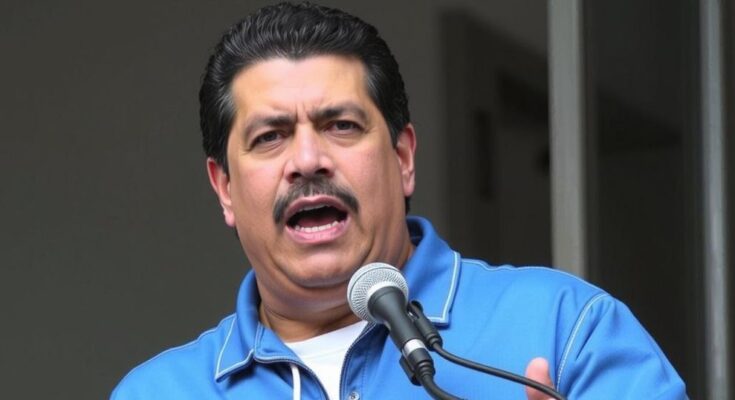Nicolás Maduro was sworn in for a third term amidst allegations of election theft and international condemnation. Despite a boycott from many democratic leaders, Maduro defended his presidency, while critics, including US and UK officials, have denounced his claim to power as illegitimate. Opposition leaders continue to call for resistance against his regime’s authoritarian measures, indicating a deepening political crisis in Venezuela.
Nicolás Maduro, Venezuela’s controversial president, has taken an oath for a third term amidst widespread outrage over allegations of election fraud. The inauguration ceremony was notably poorly attended by international leaders, particularly those from democratic nations, who boycotted the event due to concerns regarding the legitimacy of Maduro’s victory in the July elections. Despite the protests, Maduro’s government remains entrenched, buoyed by support from military and domestic allies.
During his lengthy unrepentant address, Maduro characterized his regime as a beacon of democracy and emphasized his roots in the Venezuelan populace while referring to his political opposition as extremities and fascists. He notably claimed independence from foreign influences in his rise to power, positioning himself as an anti-imperialist champion of a more democratic Venezuela.
International criticism regarding the legitimacy of Maduro’s presidency has intensified since his swearing-in. Notable political figures, including leaders from Latin America and the US Secretary of State, have labeled his government a dictatorship following the politically fraught elections. New sanctions have been announced in response, with the United Kingdom and the United States making clear their stance against Maduro’s regime while calling for a return to democratic governance in Venezuela.
Opposition figures, although significantly repressed, continue to denounce Maduro’s presidency. Statements from leaders such as Juan Pablo Guanipa express a commitment to resisting what they frame as a illegitimate power grab. Guanipa’s assertion of a need for non-violent resistance underscores the ongoing struggle for democratic freedoms in Venezuela.
The political landscape in Venezuela has been tumultuous since Nicolás Maduro first took office in 2013 after succeeding Hugo Chávez. Allegations of electoral fraud have plagued Maduro’s government, particularly surrounding the 2024 elections, which many domestic and international observers deem not free or fair. With economic instability, immense social issues, and extensive international backlash, Venezuela’s political crises continue to provoke dissent both within and outside the country. This recent swearing-in further amplifies tensions between the Maduro regime and its critics, including several left-leaning leaders in Latin America.
The swearing-in of Nicolás Maduro for a third term has occurred amidst serious allegations of electoral fraud, widespread condemnation, and calls for democratic restoration from various global leaders. With opposition figures vowing to resist and an increasing chorus demanding accountability for the alleged abuses by Maduro’s regime, the future of Venezuela remains uncertain. The resolve of the Venezuelan people and the international community’s stance will be crucial in shaping the outcome of this ongoing political crisis.
Original Source: www.theguardian.com




